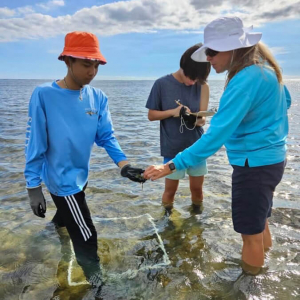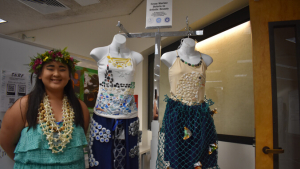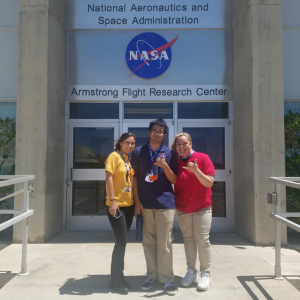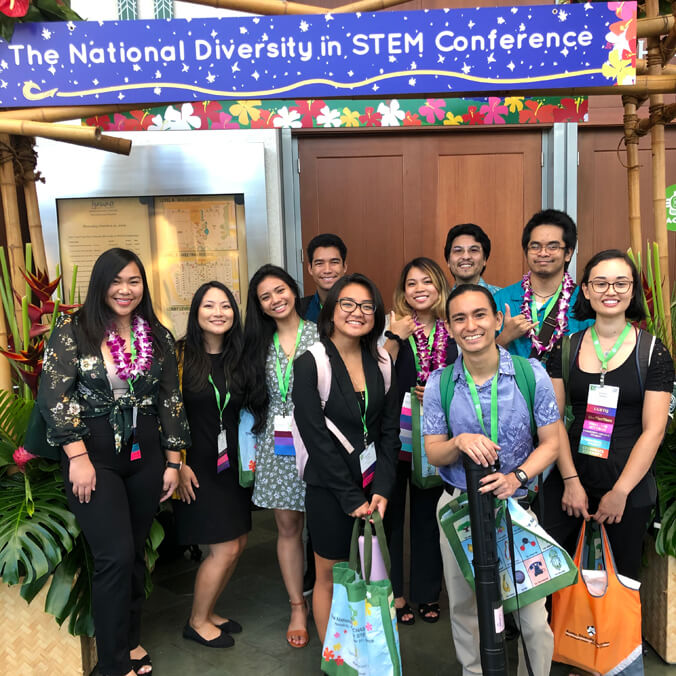
To build knowledge in emerging technology fields and motivation to pursue careers in science technology education and math (STEM), Kapiʻolani Community College is partnering with the Institute for Future Intelligence and diverse community organizations to provide about 300 students with STEM opportunities.

The college recently received more than $800,000 from the National Science Foundation for “Explorations: Developing A Diverse STEM Workforce through Experiential Learning Opportunities and Immersive Internships,” a three-year project. Community partners include the Pacific American Foundation, which is using advanced biotechnology approaches to characterize sediments at the Waikalua Loko ʻIa fishpond, and Diatomic Devices, a local start-up that is addressing harmful algal blooms using multispectral imaging and low-altitude unmanned aerial vehicles.
“This is an exciting opportunity for our students,” said Chancellor Misaki Takabayashi, a co-principal investigator. “The sciences that are applied to sustain our lives in Hawaiʻi will need to be contextualized in the environment and people here. Students in this program will have first-hand experience in applying such sciences to fuel their career preparation.”

There will be three iterations of a year-long program, which runs for one school year and covers three phases:
- Inspire—partners in government, academia, nonprofits and industry will present their work to at least 300 STEM majors at Kapiʻolani CC.
- Inform—students will see first hand what careers in that field involve and possible hands-on participation at site visits to partner organizations.
- Immerse—selected students will gain deep, experiential learning opportunities in an 8–12 week summer internship at a partner organization.

Students will also learn to work with large data sets and various technologies to process, analyze and gain understanding from these data. In many cases, partner organizations utilize artificial intelligence and machine learning as part of their workflow, and will demonstrate practical applications.
“This collaboration with Kapiʻolani CC will introduce students to exciting new STEM technologies that bridges classroom learning and real-world application. The exposure will demonstrate to students the skills needed to be competitive in a future workforce that embraces the impact of data science and computational thinking will have on society,” said Dylan Bulseco, senior vice president at the Institute for Future Intelligence. “This is perfectly aligned with our mission at The Institute for Future Intelligence and we are excited to participate in this NSF-funded opportunity with Kapiʻolani CC.”
Co-principal investigators include Kapiʻolani CC Undergraduate Research Coordinator Li-Anne Delavega and Interim Executive Director of Strategy Michaelyn Nākoa Hall. The project also emphasizes soft skills—team building, communication, problem solving and adaptability in the workplace—to develop students who are resilient and motivated to pursue future studies or careers in STEM.


